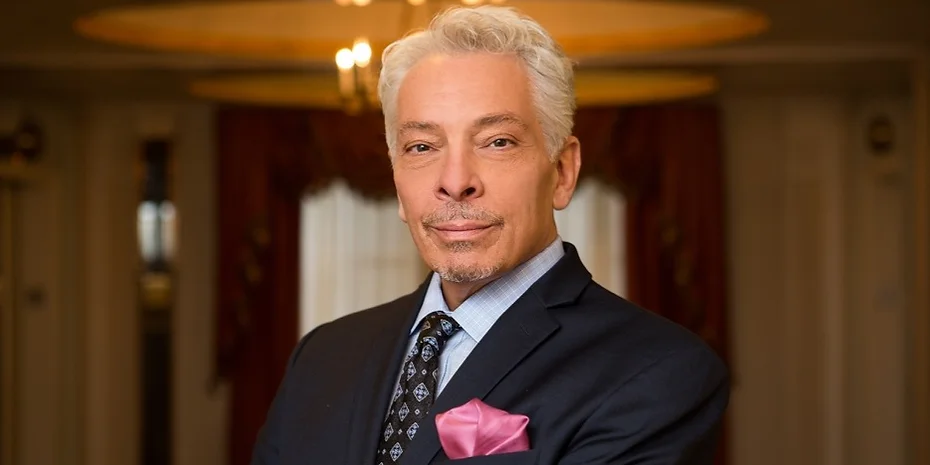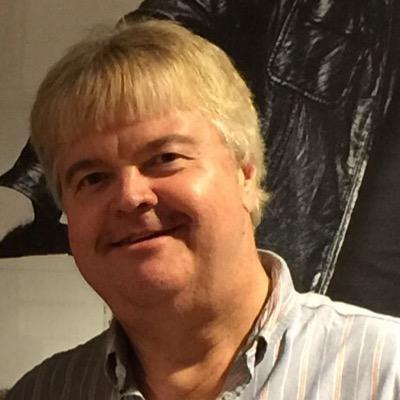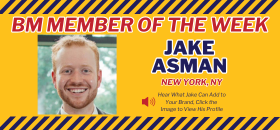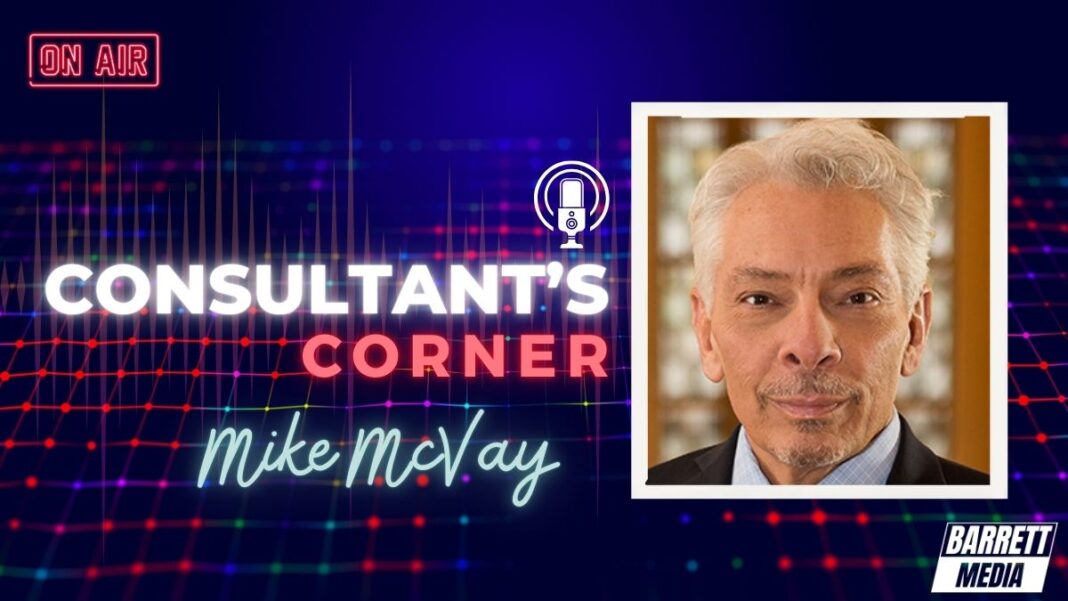Mike McVay is President of Cleveland-based McVay Media, a full-service consulting firm. He began his consultancy in 1984. In 2011, he joined Cumulus Media as Senior Vice President of Programming. In 2018, he left Cumulus and returned to McVay Media.
McVay has won numerous awards for his work, including the Rockwell Award, Lifetime Achievement Award from the Worldwide Radio Summit, Broadcast Executive of the Year, and many more.
Prior to consulting, he programmed in Los Angeles, San Diego, Louisville, Charleston, and Wheeling. He has also owned stations and worked with artists like Reba McEntire, Katy Perry, and Jewel.
He is this week’s featured consultant.
Jeff Lynn: Let’s start with a State of the Union-type question. How do you see the state of the music radio business right now?
Mike McVay: Music radio, and all radio, has intense competition for ones’ ears. That’s the challenge. How do you get your share of listening in a 24 hour day. There is what the DSP’s deliver, Online radio stations, Podcasts, News/Talk, Sports/Talk, YouTube, Television, Video, and Satellite Radio. The rise of spoken word as a format is because of its’ uniqueness. There are plenty of options for music, so a radio station has to be more than simply a music station that plays great songs with fewer commercials. It is difficult to duplicate a streaming music station, without commercials, by doing no more than matching them song-for-song. You need personalities that attract interest and create engagement.
JL: What is the biggest challenge facing the industry?
MM: Overleveraged operators. The second and third wave of consolidators are bailing water out of a leaking boat. They can’t cut expense quickly enough, they’re without the resources, or stomach, to invest in the product, and marketing to attract an audience. Radio is still a good business. Advertisers use radio. The challenge isn’t one created by most of today’s owners. Some yes, but not all. It comes down to debt.
JL: I’m not bashing the big companies; they have debt to service. But what can radio do to make the product still attractive with heavy spot loads and so many alternatives?
MM: My belief is that every radio station needs a Superstar. Be they syndicated or local, there has to be someone that’s so good you’ll sit through a long stop-set of commercials to hear what’s next. That is where radio should be focusing their investment when it comes to content. On the personality who is a Star or who has the strong potential to be a Star.
JL: I started in radio, working nights, overnights, and weekends. Those opportunities are not really available anymore. How will we create the next Howard Stern, Ryan Seacrest, or Elvis Duran?
MM: I often hear broadcasters opine that we don’t have a training ground anymore because we don’t have overnights. I believe that there are many more opportunities today for talent to hone their skills. We have the Internet, podcasting, broadcasting schools, the RAB has the National Radio Talent System, and Social Media platforms galore. I coach some talent who started out as influencers. I work with Podcasters who started as hobbyists. There are lots of places to learn … and lots of places where to search for talent.
JL: How important is video to supplement the on-air product and for talent to expand and create their own brand?
MM: Video is important in podcasting. It has some sexiness to it for radio. It isn’t what’s going to attract an audience. Video creates a familiarity for the audience as to who the talent is and what they stand for as a brand. You have to do more than sit there and talk, and that’s the downfall of how most people utilize video.
JL: Social Media algorithms are a moving target, seemingly changing by the minute. What are you advising clients on for an effective Social Media strategy?
MM: Everything I’ve learned about social media has come from Consultant Lori Lewis, my daughter Jai, who handles social media for McVay Media, and what I’ve observed others seem to do successfully. It’s about engaging content, having a regular cadence, and using social media to create or solidify your brand.
JL: Should morning shows, in particular, be supplemented on air with a podcast? And what are some good techniques in building an off-air, on-demand following?

MM: Turning ones morning show into a podcast is smart as it enables the listener to hear a show on-demand. That expansion of access can give you a new/larger audience.
JL: Since you’ve seen both sides of the equation, how do programmers balance the directions coming from a corporate PD or SVP with balancing the art of the intricacies of each local market and meeting the audience’s expectations?
MM: It’s not easy, and much of that balancing act depends on the relationship between the PD and the Corporate Programmer. Having been an Executive VP/Programming & Content for one of the largest companies, my approach was always to explain why scale was necessary, what the objective was in a particular situation, and how corporate would support that programmer. It should be said that there is always going to be some element of failure whether direction comes locally or corporately. That’s mainly because the audience is unpredictable, and the methods of measurement are sometimes insufficient or prone to wobbles. That’s a fact and not an accusation.
JL: What part do you see AI playing in the immediate future?
MM: Writing promotional and advertising copy, providing research and insight, voicing commercial tags, and possibly voicing commercials. Giving a voice to currently unattended dayparts.
JL: Bonus Question: What was the best career advice you were ever given?
MM: Listen and pause before talking. Pay attention to what others are saying and respond thoughtfully. A quote that is often attributed to either Mark Twain or Abraham Lincoln is, “It’s better to say nothing and thought a fool than to speak and remove all doubt.”
Reach Mike by email here. Or at 440.933.0440 or through McVayMedia.com

Jeff Lynn serves as Editor of Barrett Media’s Music Radio coverage. Prior to joining Barrett Media, Jeff spent time programming in Milwaukee, Omaha, Cleveland, Des Moines, and Madison for multiple radio groups, including iHeartMedia, Townsquare Media, NRG Media, and Entercom (now Audacy). He also worked as a Country Format Editor for All Access until the outlet shut down in August 2023.
To get in touch with Jeff by email, reach him at Jeff@BarrettMedia.com.








